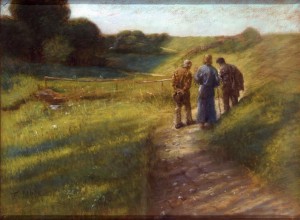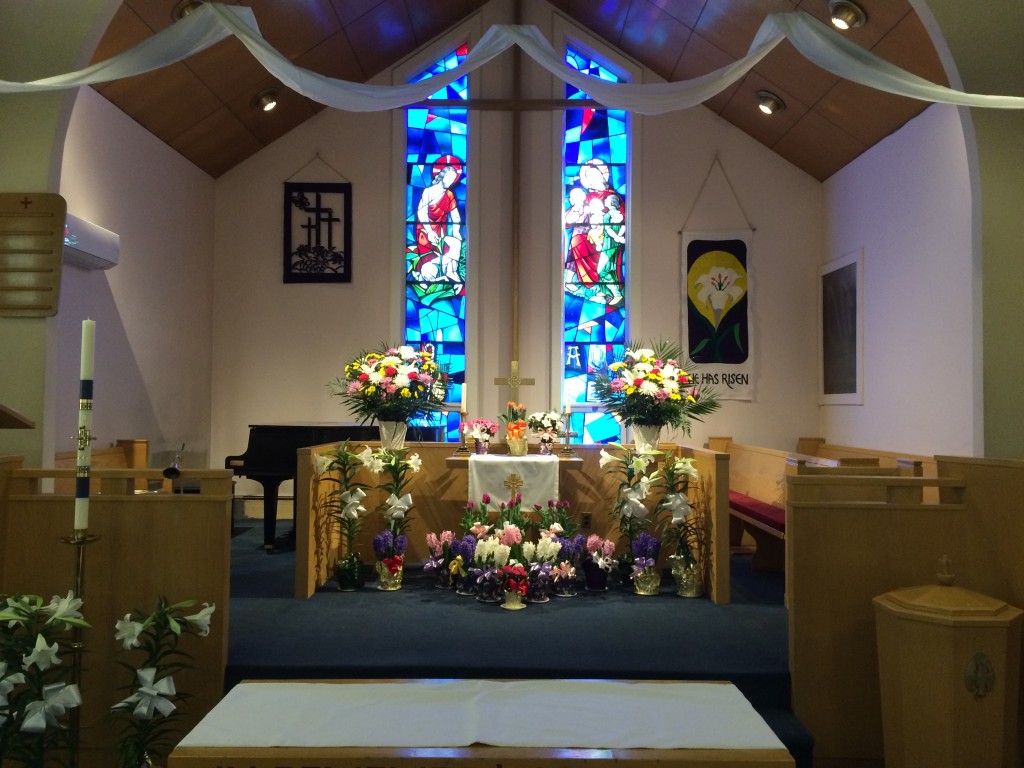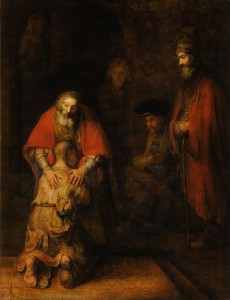a sermon on Psalm 23
preached on April 17, 2016, at the First Presbyterian Church of Whitestone
There’s something unusual and special about Psalm 23. These incredible words that we just sang manage to touch our lives in ways that we just can’t imagine—especially for the city dwellers among us who have never even once seen a sheep or a shepherd!
There are so many wonderful settings of this psalm, both spoken and sung. My friend Michael Morgan, a collector of translations of the Bible and especially of psalters, or translations and paraphrases of the psalms, shared with me a lecture he offered recently on Psalm 23 to the good people of Maranatha Baptist Church in Plains, Georgia, the congregation where former President Jimmy Carter worships and teaches Sunday school. In his lecture, Michael offered dozens of translations of this beloved psalm, wandering through centuries of English poetry and prose to describe in words ancient and new the wonder of our shepherding God. For centuries, great poets would offer their own translations and paraphrases of this psalm, mining these incredible lines for deeper meaning. Among all the translations and paraphrases shared by Michael in his lecture, including one that can be sung to the tune of “Rudolph the Red-Nosed Reindeer,” I had a difficult time deciding which ones to share with you, but I did decide on three that seemed appropriate for this day when we consider these beloved words anew.
First comes one that Michael describes as “the worst”—and I would agree—from The Politically Correct Jargon Version:
It is an ongoing deductible fact
that your inter-relational empathetical and non-vengeance capabilities
will retain me as their target focus
for the duration of my non-death period,
and I will possess tenant rights in the housing unit of the Lord
on a permanently open-ended time basis.
I can only offer one word: yikes.
Then there is a lovely paraphrase by contemporary poet Marjorie Gray:
Divine Guardian, You care for us;
You provide all we need, and more,
taking us to serene, green places
where we are refreshed to the core.You show us Right Ways,
trails Your Ranger blazed.
Not even death’s gloom traumatizes us
on the path to Your Lighthouse.We are safe and strong:
with so-called enemies
You invite us to feast, carefree,
blessed with effervescent health.Your passionate compassion
always invigorates us;
we’ll be Down Home forever
with You, Joyful Peacemaker.
Finally, there is a lovely paraphrase by 17th century poet Samuel Woodford that begins:
The mighty God, who all things does sustain,
That God, who nothing made in vain,
Who nothing that He made did e’er disdain;
The mighty God my Shepherd is,
He is my Shepherd, I His sheep,
Both He is mine and I am His;
About His flock, He constant watch does keep;
When God provides, poor man can nothing need,
And He, who hears young ravens cry,
His sheep will feed.
Yet all these wonderful poetic settings so easily miss that these words of Psalm 23, like all the psalms, were meant to be sung. We don’t know exactly how the ancient Hebrew people sang the psalms. Modern musical notation has only developed in the last six hundred years, and so the original tunes are long lost.
Modern-day composers and churches have taken several different approaches to singing the psalms. First there is the metrical paraphrase, much like our last hymn. These have a regular meter that can easily fit words to tunes that might even be familiar from other hymns. In many quarters of the church after the Reformation, including in our own parent churches of Scotland and Switzerland, the only music that was allowed was sung settings of the psalms like these—never accompanied, always as simple as possible—and some churches even keep up this practice today. As an example of these sorts of psalms, let’s sing the first verse of my friend Michael Morgan’s own paraphrase of Psalm 23 as found in your bulletin.
As faithful shepherds tend their flocks,
So God will care for me;
And from God’s store of grace my needs
Are met abundantly.
In pastures green, by waters still,
My soul new life does take;
And in the paths of righteousness
I follow, for God’s sake.
Other sung settings of the psalms use a refrain and then a chanted tone, like setting two in your bulletin. This particular setting uses a portion of a hymn tune as the refrain, but the chanted part that follows is a little different, as it has no written rhythm but rather follows the natural rhythm of the words.
(No recording of this setting seems to be available online.)
Building on these sorts of responsive, chanted psalms, some contemporary composers have offered their own settings of the psalms, with simple, repeated refrains and fully composed music for the verses. This style came into its own after Vatican II in the Roman Catholic Church in the 1960s, as traditional Latin liturgical music became less important and the church sought out new ways to sing the traditional portions of the service. One of my favorites actually has made it into our hymnal at #473. Let’s turn there and sing it together.
There are hundreds more sung settings of Psalm 23, reflecting not just the deep love of this psalm in the lives of people of faith but also the incredible possibilities of interpretation found in these words. As my friend Michael Morgan put it so well,
In this broad variety of words, translators have expressed the endless season we will enjoy in God’s presence, as sheep with a faithful Shepherd, or as Isaac Watts identifies each of us, ‘No more a stranger or a guest, But like a child at home.’
As a final view of these incredible words in song, I invite you to join me in singing an incredible and relatively new setting of Psalm 23 by Presbyterian composer Hal Hopson, setting words from the 1650 Scottish Psalter to a soaring responsive tune.
(No recording of this setting seems to be available online.)
So may God inspire us all our days by the knowledge of our mighty and loving shepherd who surrounds us with faithfulness, love, and hope as all things are made new in Jesus Christ our risen Lord. Thanks be to God! Amen.






